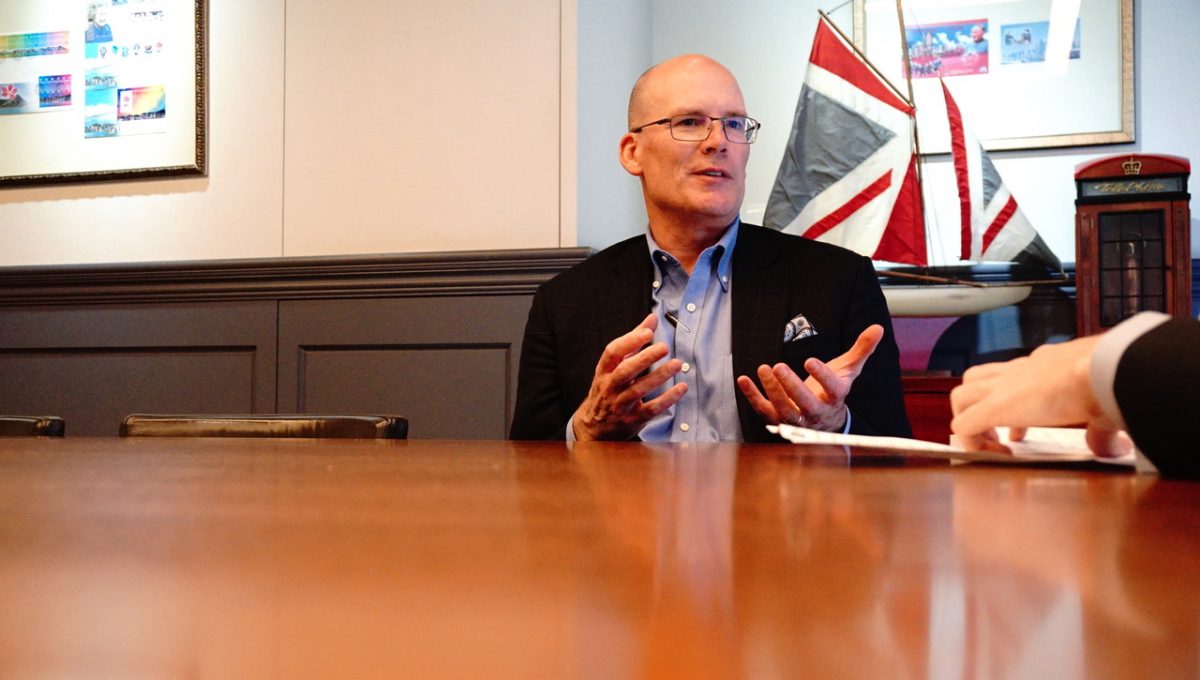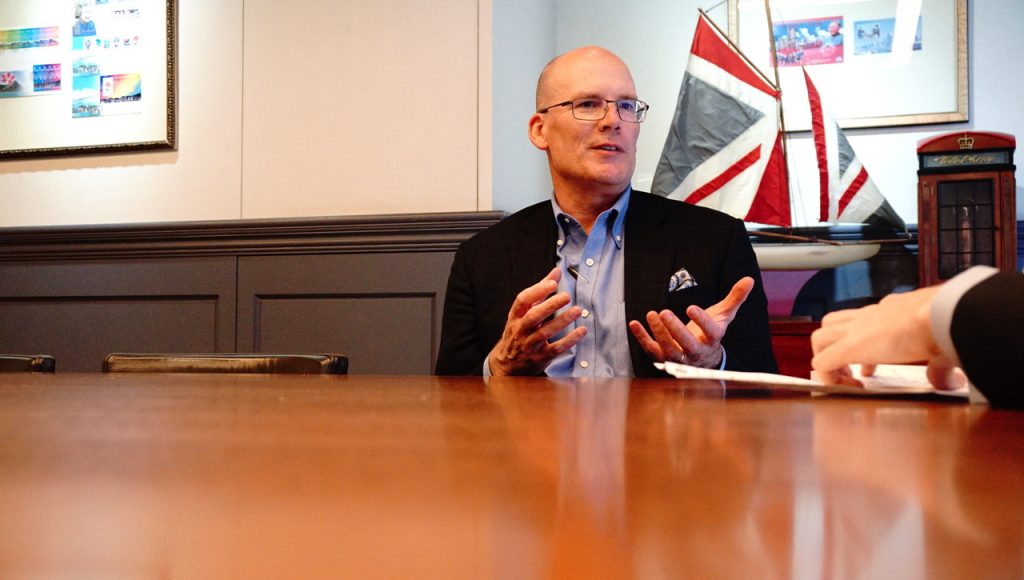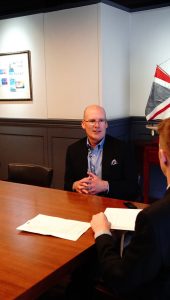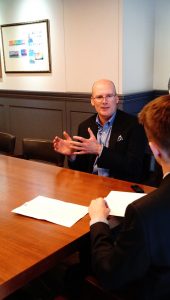
Protecting organisations in a changing digital world
As technology progresses and organisations digitalise, effective background screening has become integral to successfully recruiting and onboarding talent to an organisation. A bad hire not only risks employees, but also the company brand. Global compliance issues also often hinder organisations from getting candidate information they require. HR Magazine sat down with Scott Staples, Chief Executive Officer, First Advantage to discuss these challenges and how they can be overcome.
Q. How did you end up here?
A. I wanted to go to an industry and organisation where I could bring my skill-set as a growth entrepreneur and also my understanding of tech. The HR and background screening spaces are often a little behind the times on tech. When I came across First Advantage, I knew it was a company I could help and an industry I could make a mark on because, in my mind, it was all about new products and getting products to market faster.
 Q. What key technologies does First Advantage leverage to deliver global HR solutions?
Q. What key technologies does First Advantage leverage to deliver global HR solutions?
A. The global aspect is crucial here. When we talk about technology, across the key drivers and trends within the industry, we talk about being able to do things on a global basis. One of the biggest drivers within background screening—and HR as well—is compliance. Having one global platform is really important because the compliance engine is built into our technology. Whether it is in China, New Zealand or the United States, all the different compliance rules are built into one tech platform. In terms of technology, having that single platform— with the compliance engine behind it—is important because we’ve put a series of applications on top to improve the overall candidate experience and drive turn-around times down.
Getting data in HR managers’ hands is so important today because of the way it helps with decision-making. We’ve got an analytics tool that can give data to HR managers as to the effectiveness of their screening programme. It even gives insights into the effectiveness of their recruiting channels. The combination of a global single platform, a slick mobile app and these analytics tools has helped First Advantage in the market and helped our customers as well.
Q. Background screening has traditionally been conducted for more regulatory roles. Will this change?
A. It’s already changing. Background screening trends tend to start in the West and move East. What we can learn from what’s happened in North America and Europe is that while background screening started in regulatory-driven industries—banking, insurance and healthcare—it’s now prominent in other industries. The main reason is brand protection and we’re seeing a lot of retailers, gig-economy companies with direct contact with the consumer background screening potential candidates. They are really driving a lot of the need and maturity within the background check market because of the exposure they have to their brand. It doesn’t matter if an industry is regulated or not, they need to protect the brand because brands can topple very quickly.
"Once that person starts a job, say they’ve been working there for several years—how do you know they haven’t committed a crime or done something that could bring harm to a co-worker or to the company brand?"
Q. What changes do you foresee in the next five years? 
A. The next five years for background screening, particularly within APAC, will be all about technology development.As technology gets better and matures, background screening will become faster and cheaper. It will also be a platform in which additional services can grow. One of those services we’re seeing which is particularly hot in the market—not as much in APAC just yet but it will grow—is post-hire monitoring.
Most background checks are done pre-hire. You get checked, you get approved and you can start your job. Once that person starts a job, say they’ve been working there for several years—how do you know they haven’t committed a crime or done something that could bring harm to a co-worker or to the company brand? As technology improves and as more digitalisation comes into the system, this will enable background check providers to do real-time, ongoing monitoring to protect brands and ensure co-workers are provided a safe working place.
We will also see social media searches becoming more prominent as technology advances. I think there is a lot to learn about potential employees from social media activity. In general, a lot of this development will create a better candidate experience by managing risk, but it will also drive down costs and make things faster. For APAC particularly, a lot of it will come down to the compliance within each country and region. Digitalisation and technology will have a huge impact there because as laws change, it will be much easier to change technology and processes to control risk based on changes made at a regional level.
Q. What can be done to speed up HR digitalisation?
A. HR managers and their teams often are seen within organisations as a cost centre that never gets the proper funding or the proper attention either. In today’s world, everyone is fighting for budgets, which tend to go to the revenue producing business units first. HR often gets left behind and has to play catch up. But I think what’s happening with technology and especially with analytics is that HR is able to state a case of how certain things affect the business from a revenue and cost standpoint.
By having a single global platform, as First Advantage has, recruitment processes are run on a compressed timeline. HR managers can say, ‘We can bring this talent on board faster which has an impact on the company from a revenue standpoint.’ The result is that HR departments are able to justify the need for funding around certain initiatives by using pure analytics.
Q. How can HR preserve face-to-face candidate interactions as AI becomes increasingly prevalent?
A. It’s important to note that AI is really a catchphrase that means a lot of different things to different people. In regards to its implementation in HR, the fear is that HR looks to AI as the panacea for something they’ve neglected, a solution to fill a gap. In reality, AI only works when a process is already in place and running well, AI makes it better. As companies get more and more into AI, HR departments are still going to have to figure out how to have these personal connections. We’ve all heard people buy from people and I think people join companies because of people as well. The brand and reputation of a company get you so far, but when a candidate says yes to a company, they’re often associating the job with a person. It could be the manager, the team, or even someone in the HR process that impressed them. There’s no way AI can be a substitute for that. These two, HR and the interpersonal connection, need to be married.





 Q. What key technologies does First Advantage leverage to deliver global HR solutions?
Q. What key technologies does First Advantage leverage to deliver global HR solutions?
